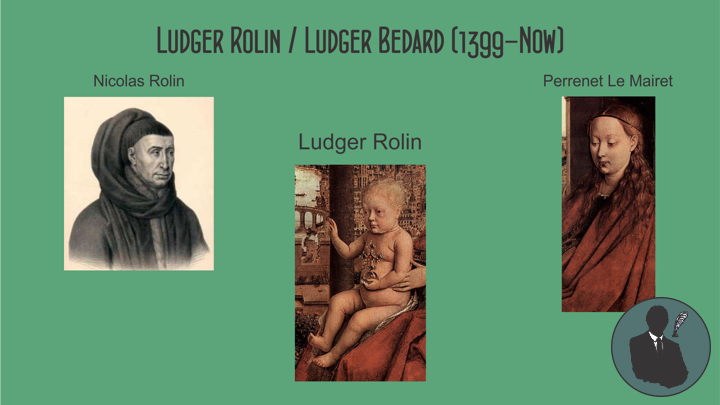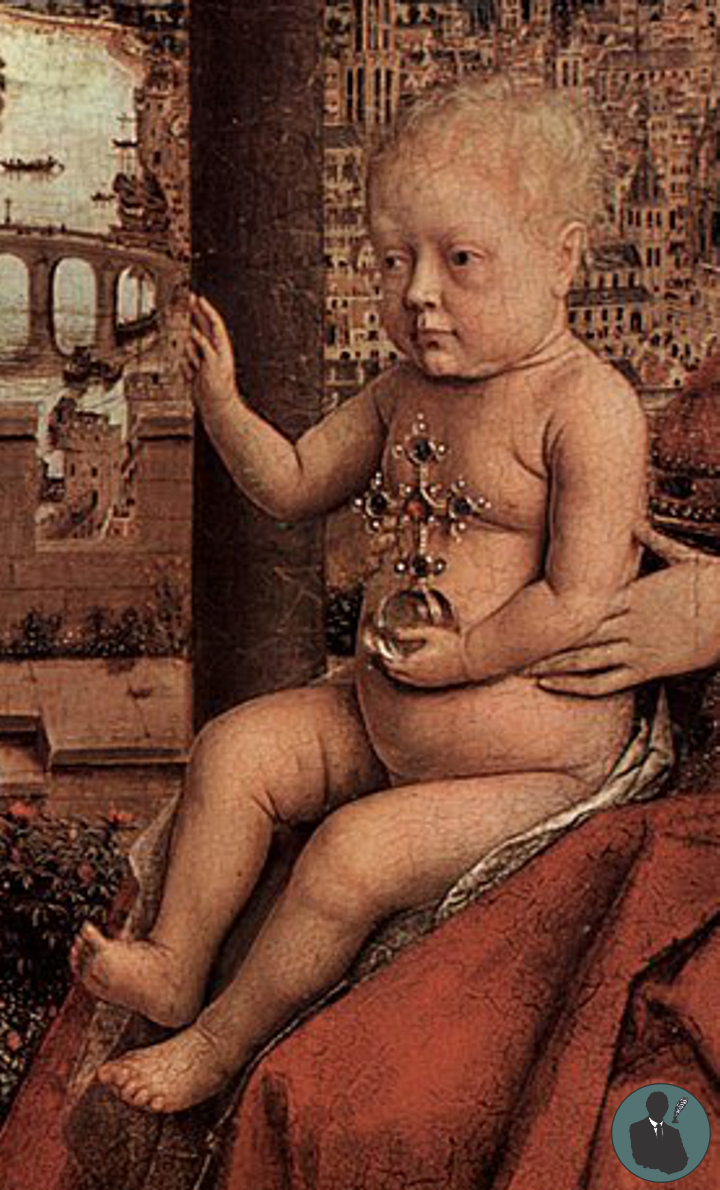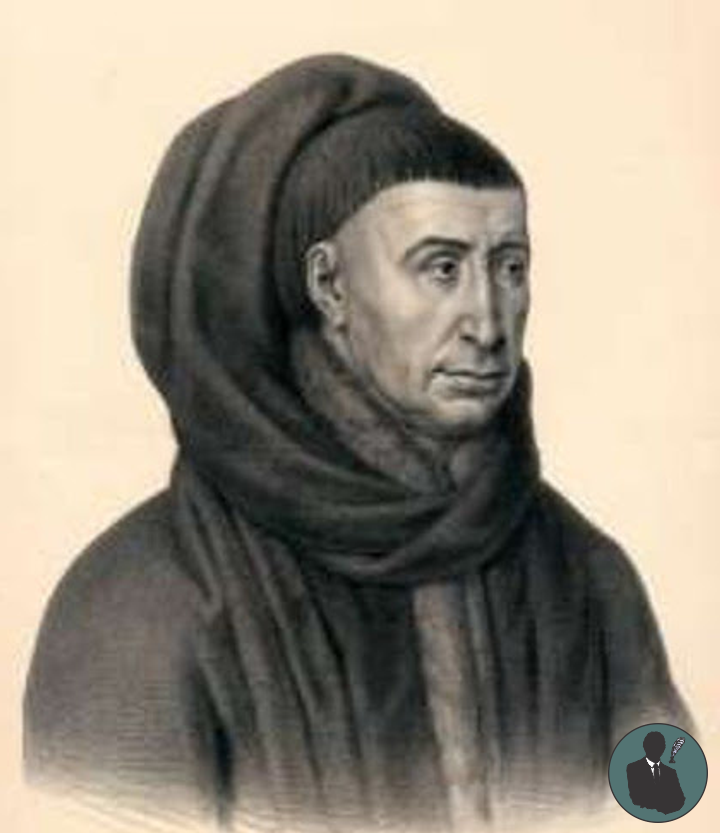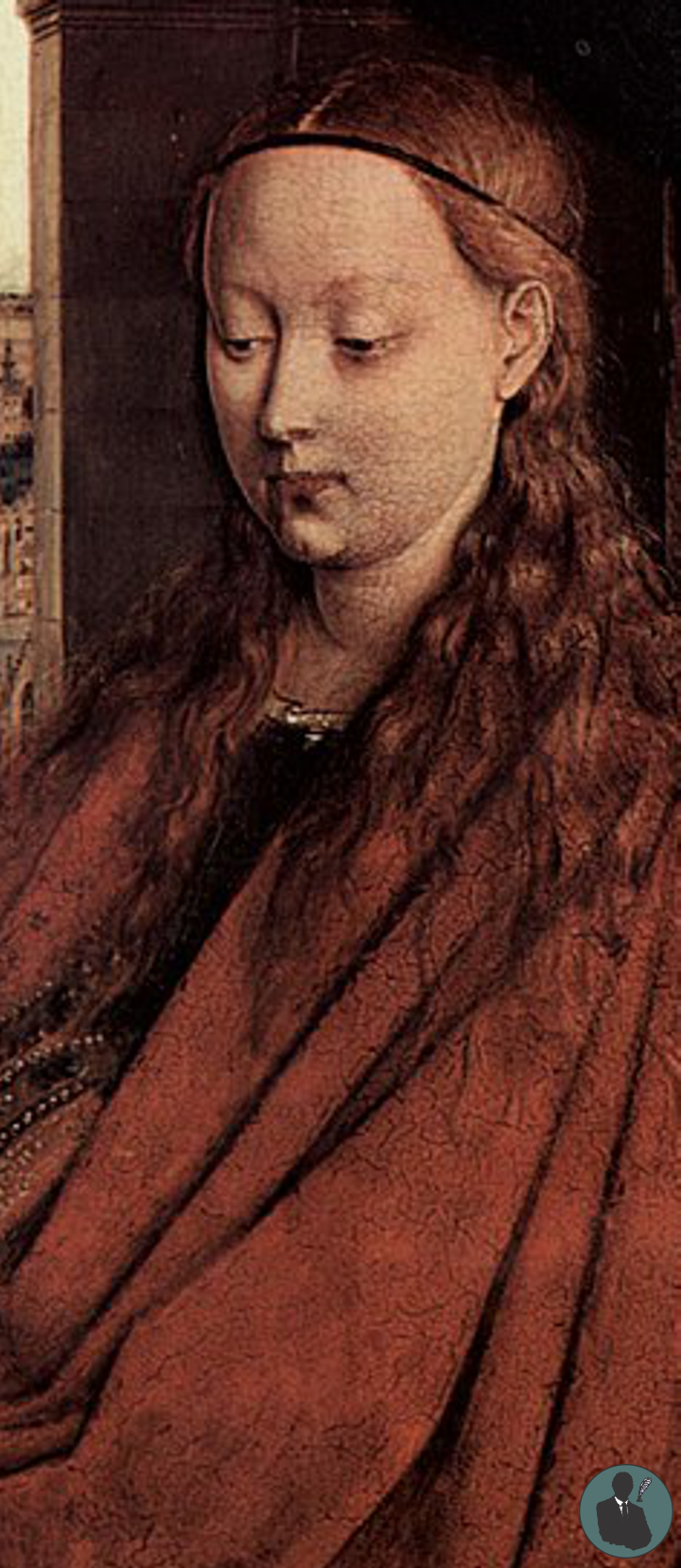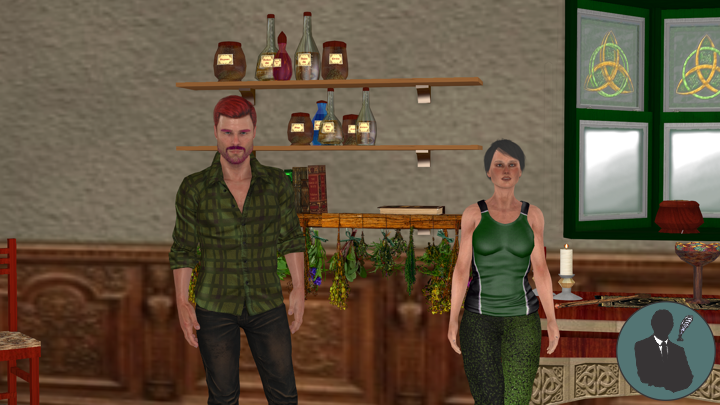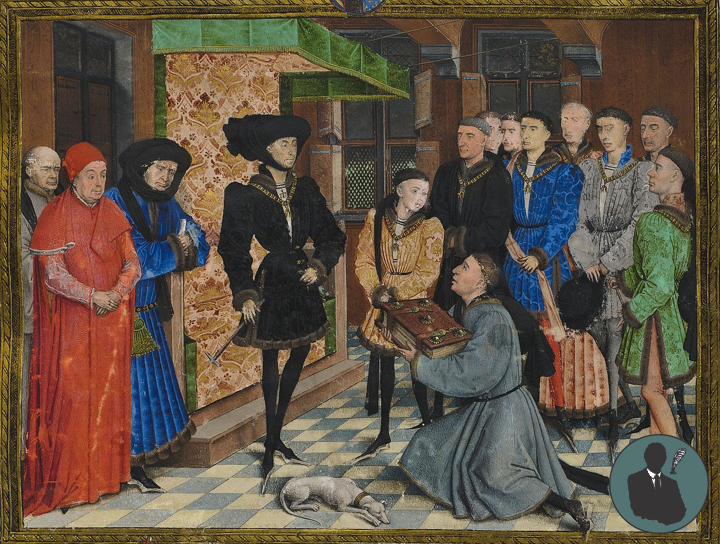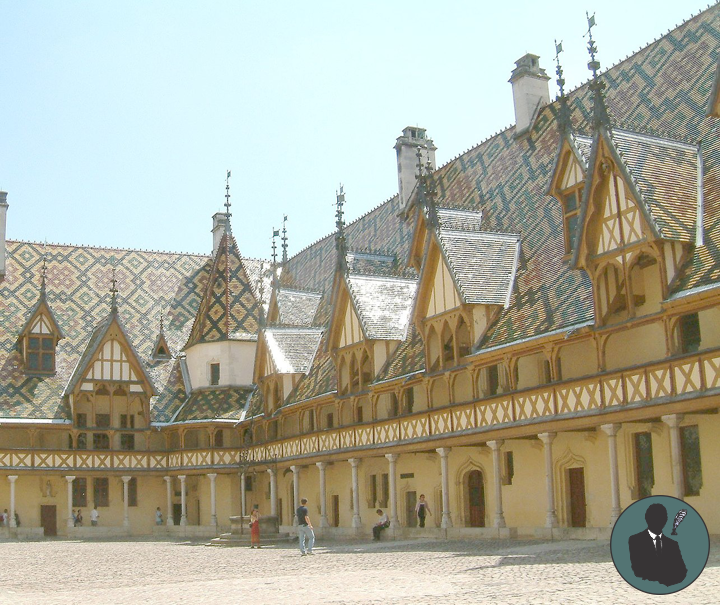——
#LudgerBedardConsultingPrivateDetective #LudgerBedard #AnneMarieBedard #LudgerRolin #NicolasRolin #PerrenetLeMairet #Detective #Adventurer #Occult #Paranormal #Magic #Alchemy #3DAnimation
——
Ludger Rolin / Ludger Bedard (1399-Now)
——
Ludger Rolin
——
Nicolas Rolin
——
Perrenet Le Mairet
——
Ludger Bedard and Mom Anne-Marie Bedard
——
Nicolas Rolin also inherited his family’s home in Autun on the Rue de Bancs, which, throughout his long life, remained his primary residence. Anne-Marie Bedard a chef de cuisine is a chef that leads and manages the kitchen and chefs of a Nicolas Rolin. The chef de cuisine is in charge of all activities related to the kitchen, which usually includes creating menus, managing kitchen staff, ordering and purchasing stock and equipment, plating design, enforces nutrition, safety, and sanitation, and ensuring the quality of the meals that are served.
Ludger Rolin as born in 1399 in Autun, Burgundy, France. Ludger, “Enfant Terrible” is a French expression, traditionally referring to a child who is terrifyingly candid by saying embarrassing things to parents or others. Nicolas Rolin and Ludger Rolin to represent the interests of children in cases where the child’s wishes differ from those of either parent. Important burgher of Autun, after practice as lawyer in the Parliament of Paris.
However, the expression has drawn multiple usage in careers of science, art, fashion, music, and other creative arts. In these careers, it implies a successful “genius” who is very unorthodox, striking, and in some cases, offensive, rebellious, usually young and successful person who is strikingly unorthodox, innovative, or avant-garde.
Anne-Marie and child Ludger Bedard a legal guardian in 1401 a person who has the legal authority, and the corresponding duty, to care for the personal and property interests of another person, called a ward. The term in “loco parentis” refers to the legal responsibility of a person to take on some of the functions and responsibilities of a parent. Anne-Marie and child Ludger Bedard here is Paris.
An avid reader from before the time he started formally in school, he has had a lifelong interest in learning. He has always said:
“If you go to bed at night without learning something new that day, your day is not complete.”
Ludger Bedard (1411)
The quintessential “Renaissance Man”, Ludger has always had deep passions for a wide variety of interest for as long as he can remember. He is self-learned on a wide variety of topics, and has developed a series of learning and creative techniques to assist him.
Polymath
A polymath is an individual whose knowledge spans a substantial number of subjects, known to draw on complex bodies of knowledge to solve specific problems. Embodying a basic tenet of Renaissance humanism that humans are limitless in their capacity for development, the concept led to the notion that people should embrace all knowledge and develop their capacities as fully as possible. This is expressed in the term Renaissance man, often applied to the gifted people of that age who sought to develop their abilities in all areas of accomplishment: intellectual, artistic, social, physical, and spiritual.
To have encyclopedic knowledge is to have “vast and complete” knowledge about a large number of diverse subjects. A person having such knowledge is called a human encyclopedia or a walking encyclopedia. The concept of encyclopedic knowledge was once attributed to exceptionally well-read or knowledgeable persons such as Plato, Aristotle, Hildegard von Bingen, Leonardo da Vinci, Immanuel Kant, or G. W. F. Hegel. Tom Rockmore described Hegel, for example, as a polymath and “a modern Aristotle, perhaps the last person to know everything of value that was known during his lifetime.” Such persons are generally described as such based on their deep cognitive grasp of multiple and diverse fields of inquiry—an intellectually exceptional subset of philosophers who might also be differentiated from the multi-talented, the genius, or the “Renaissance man.”
Ludger Bedard Detective

